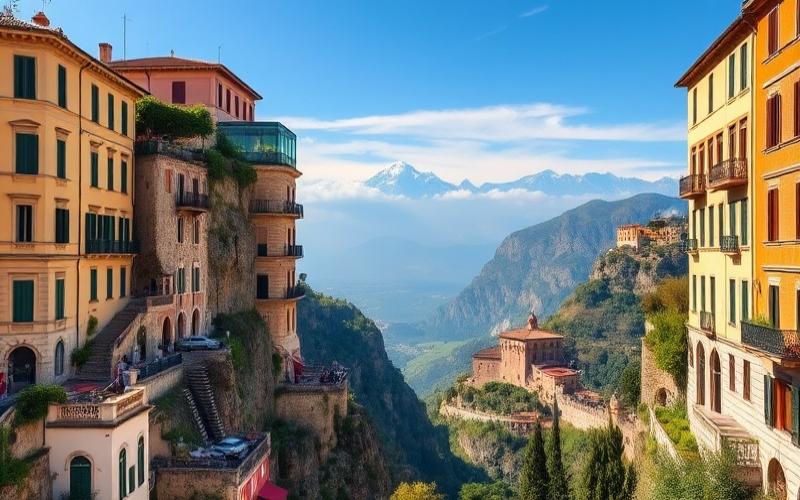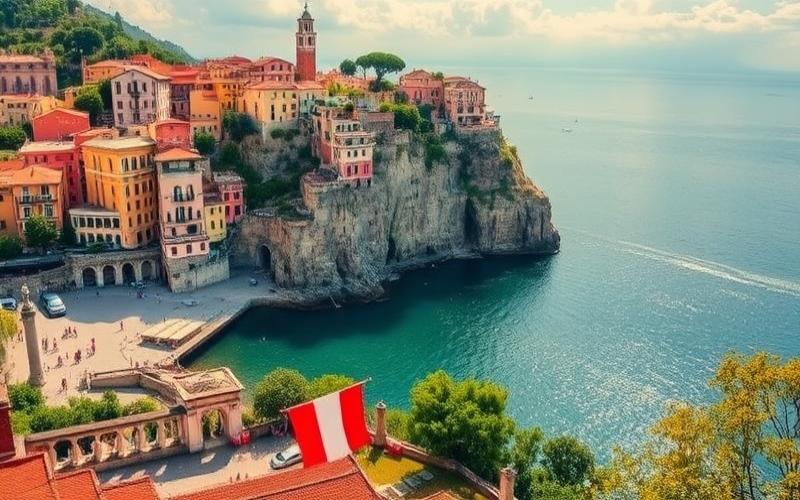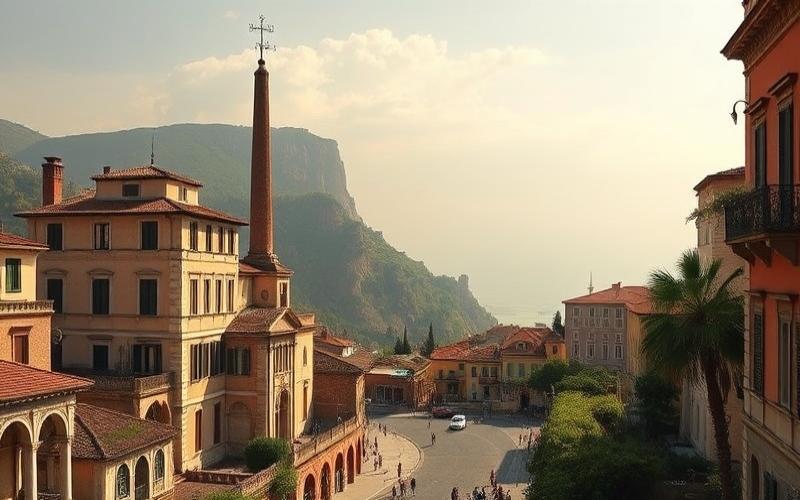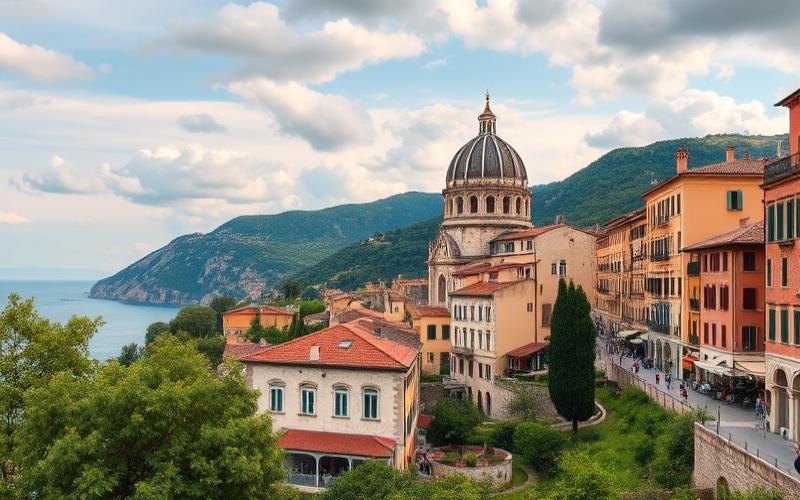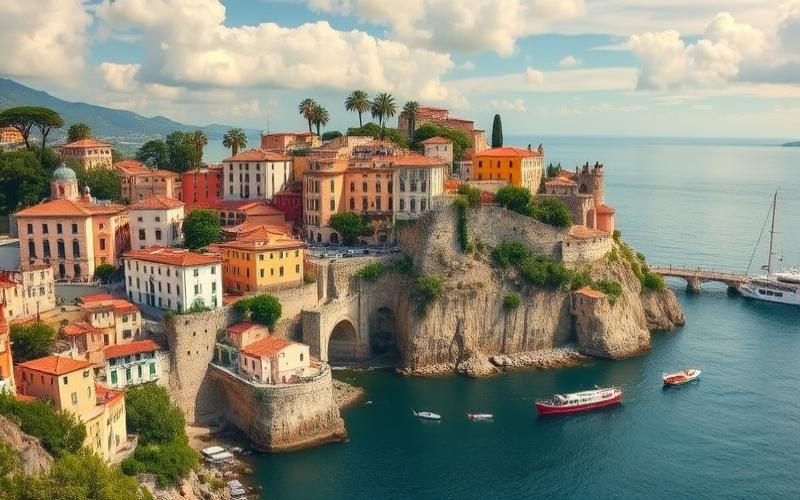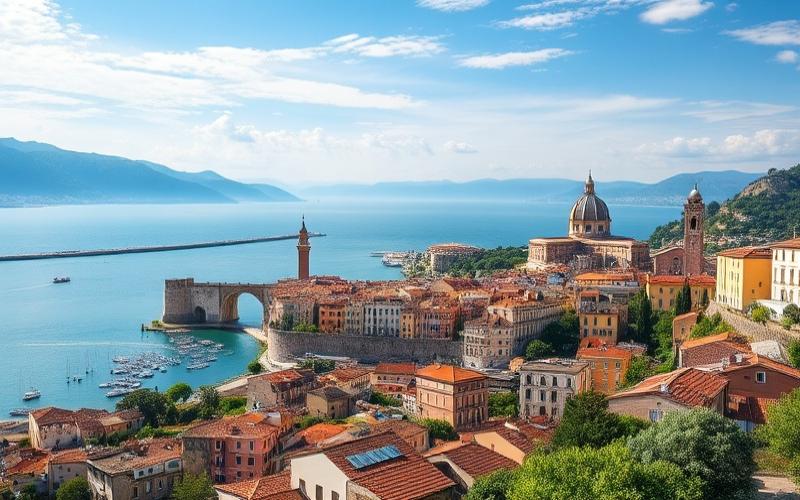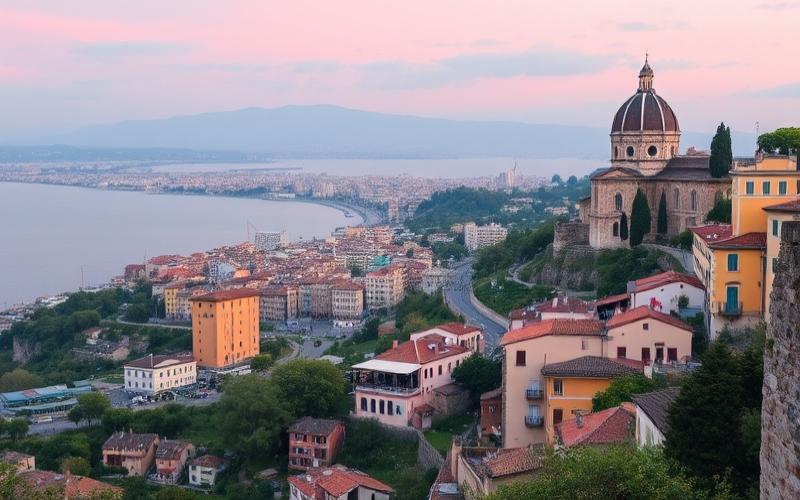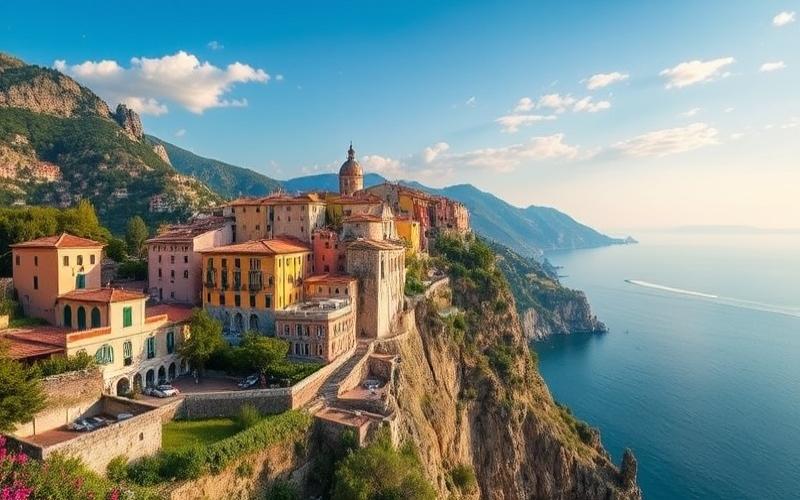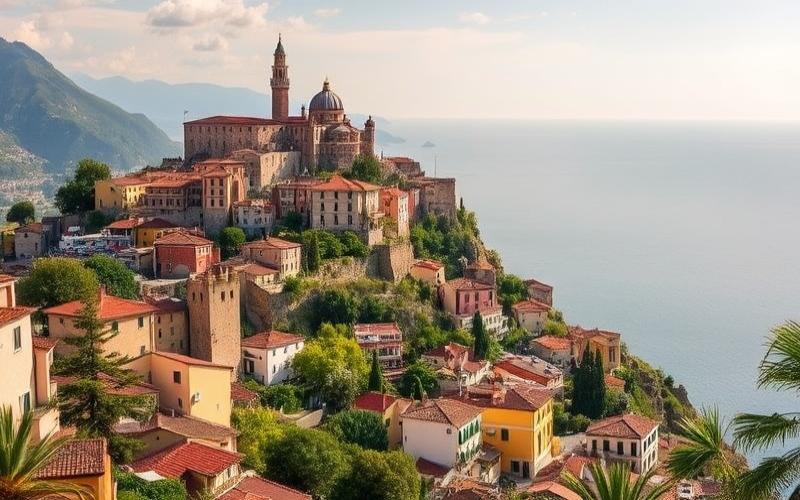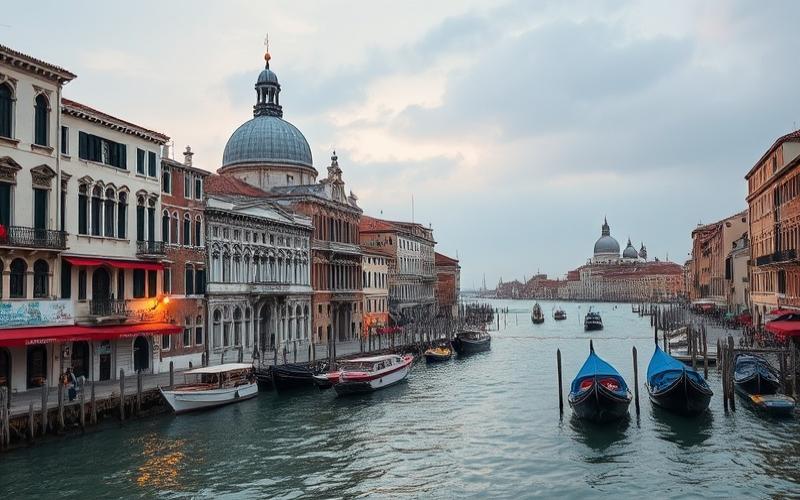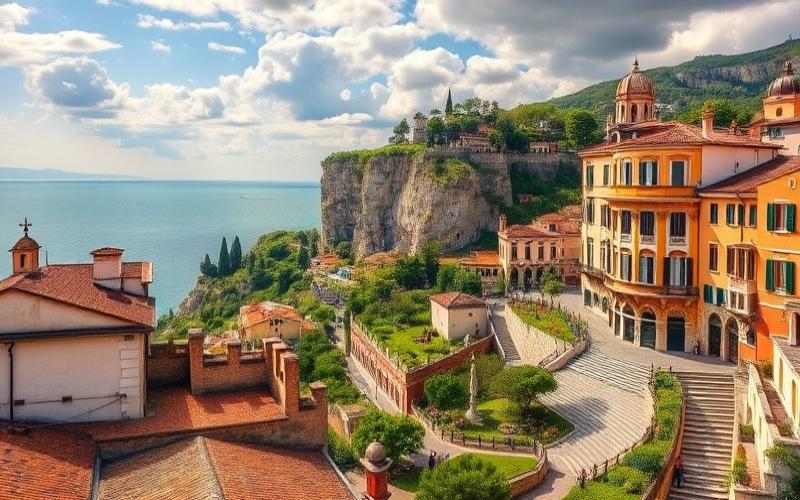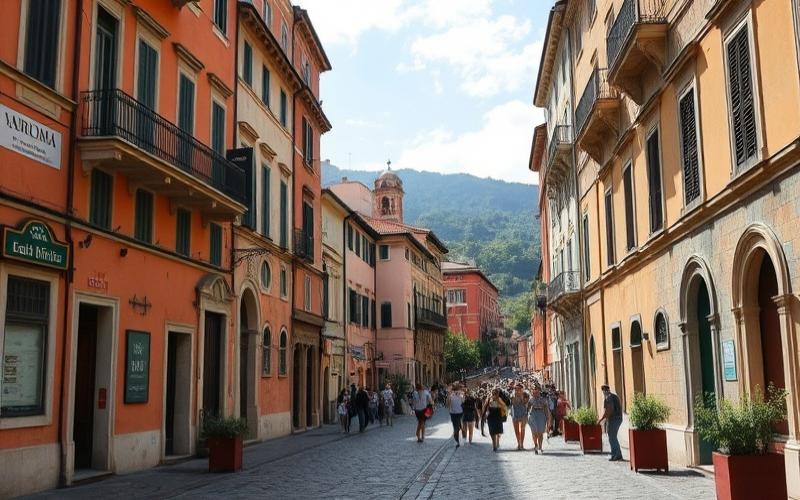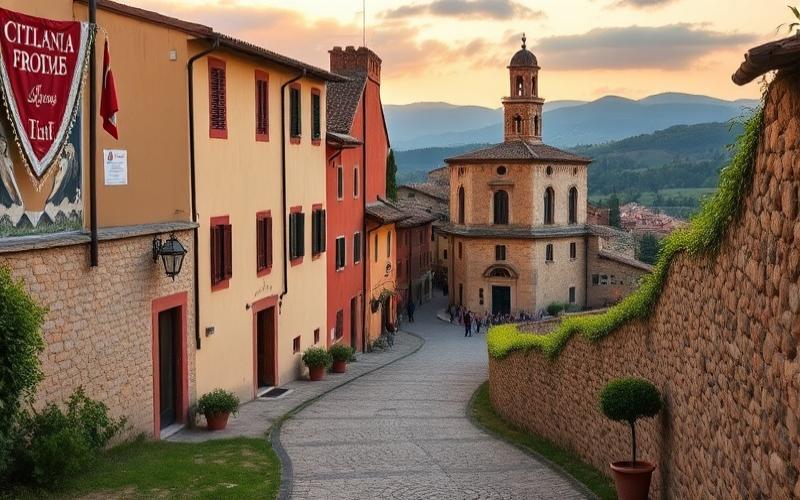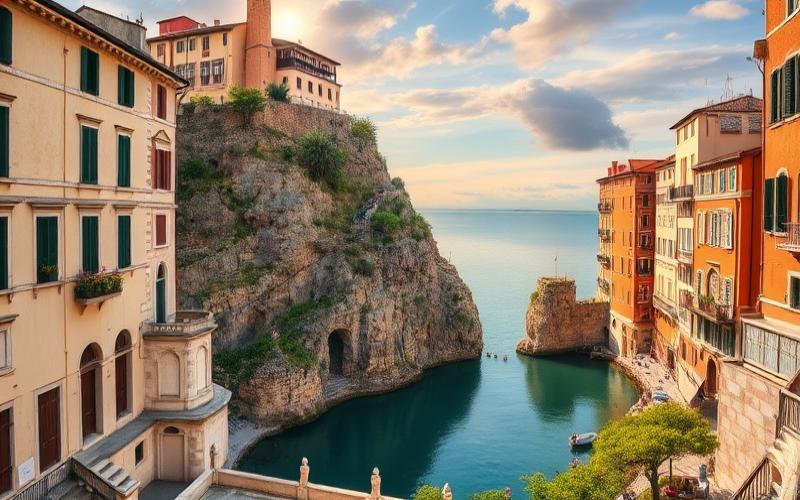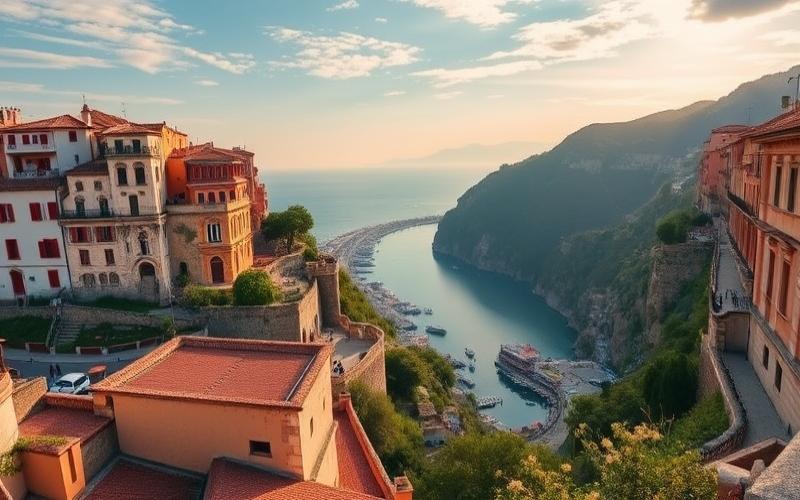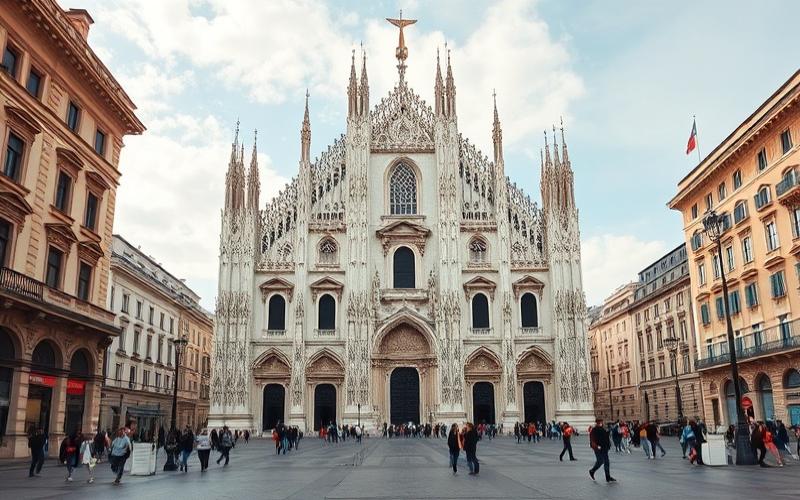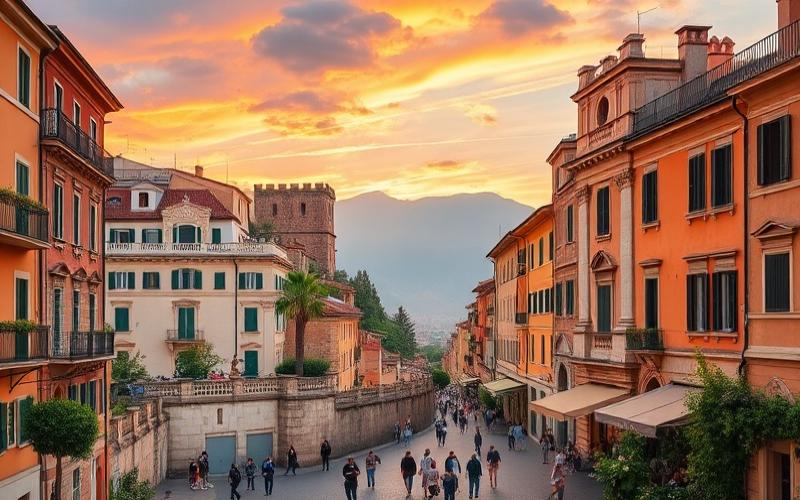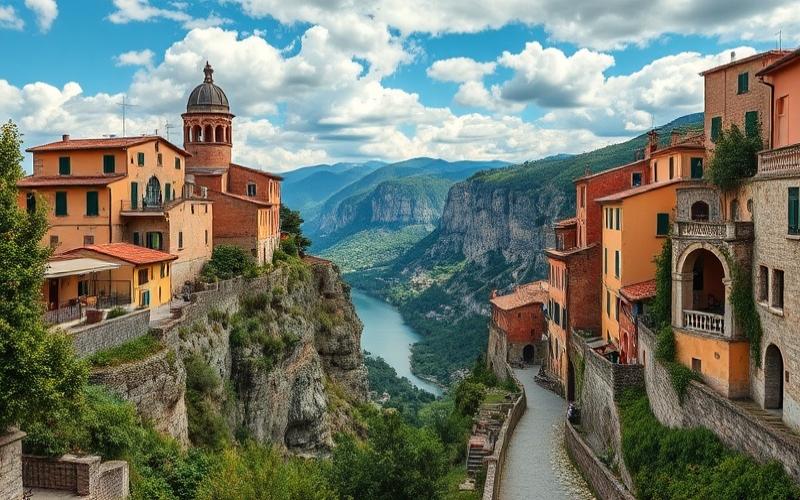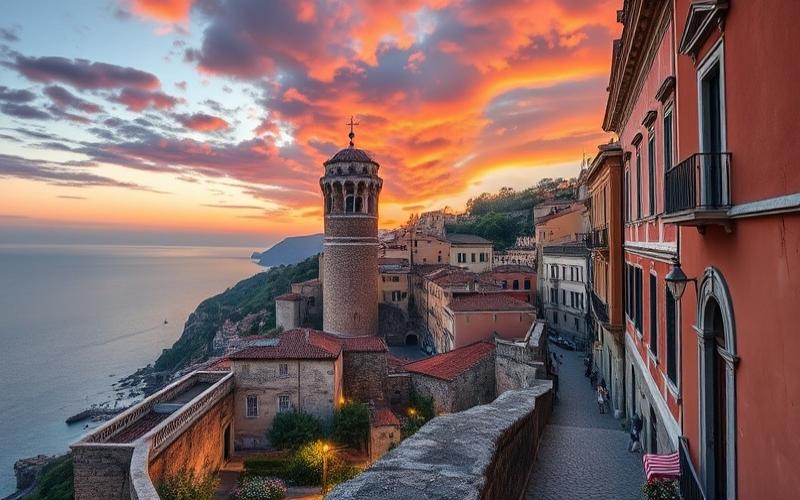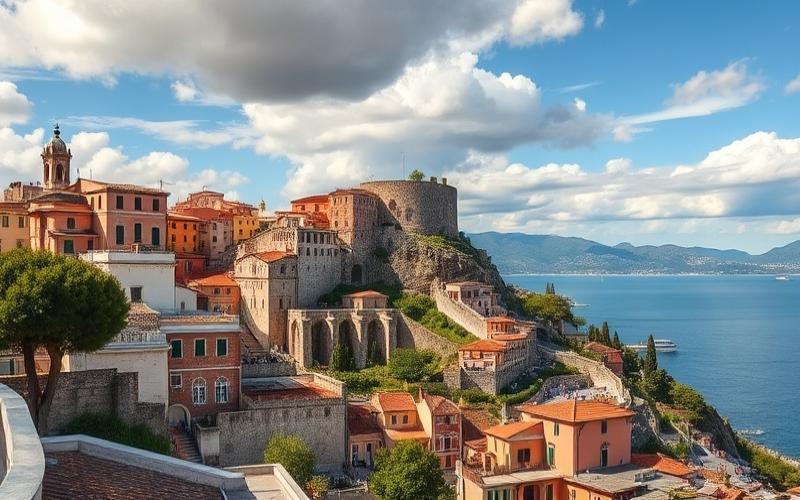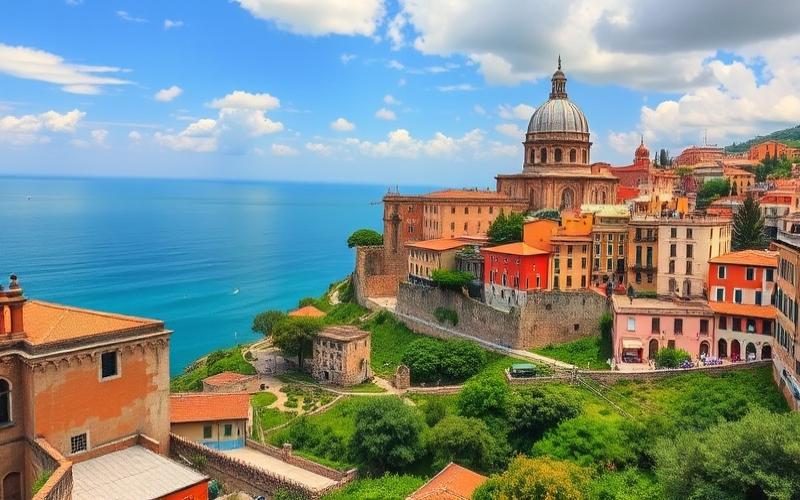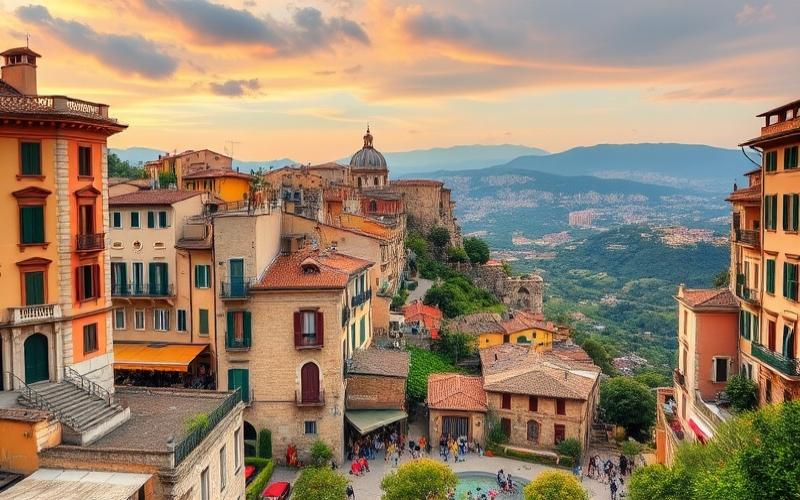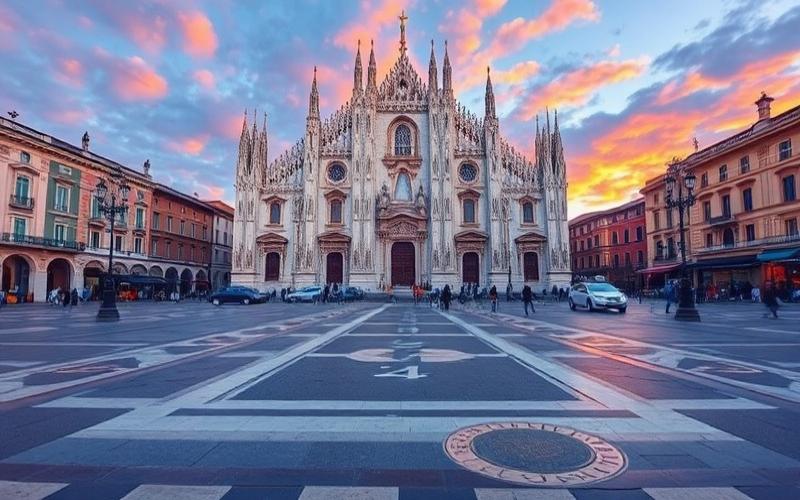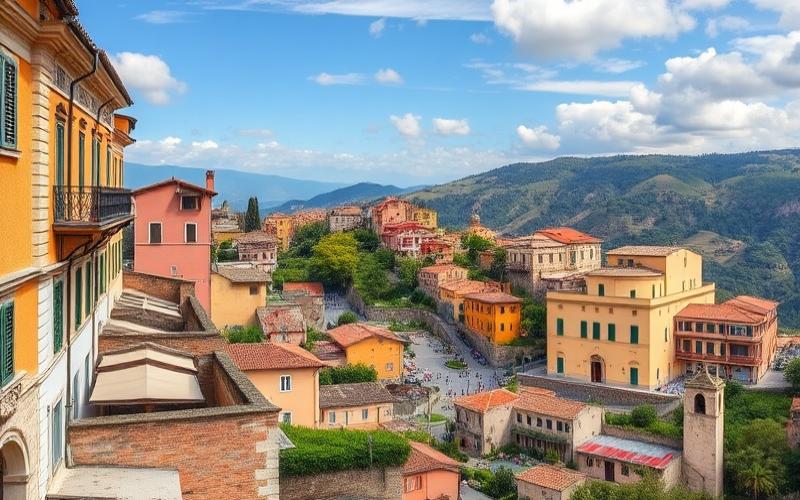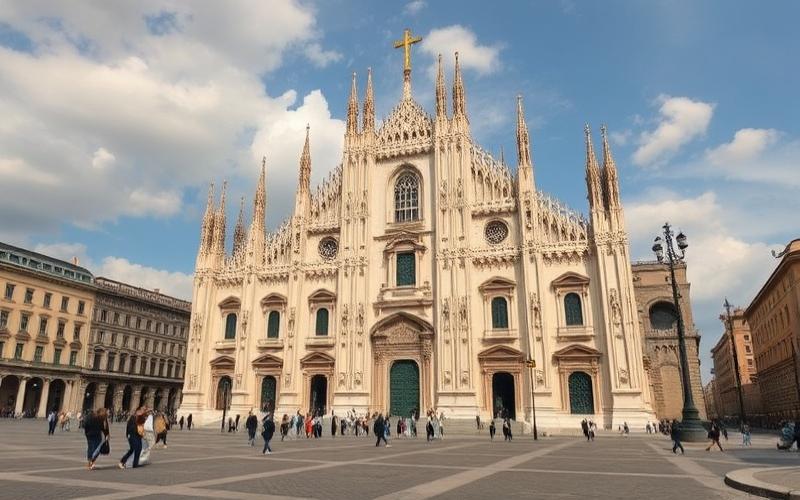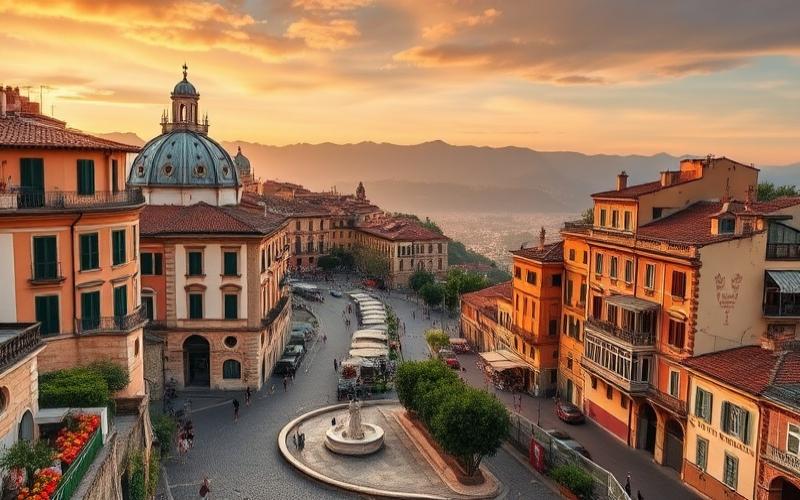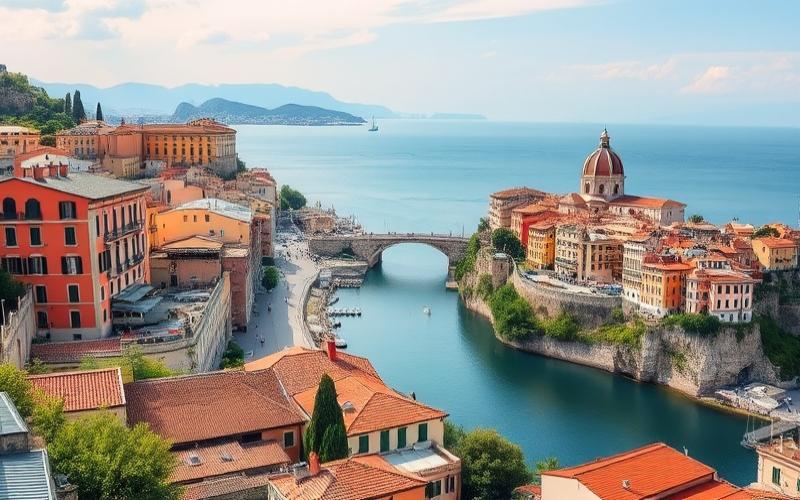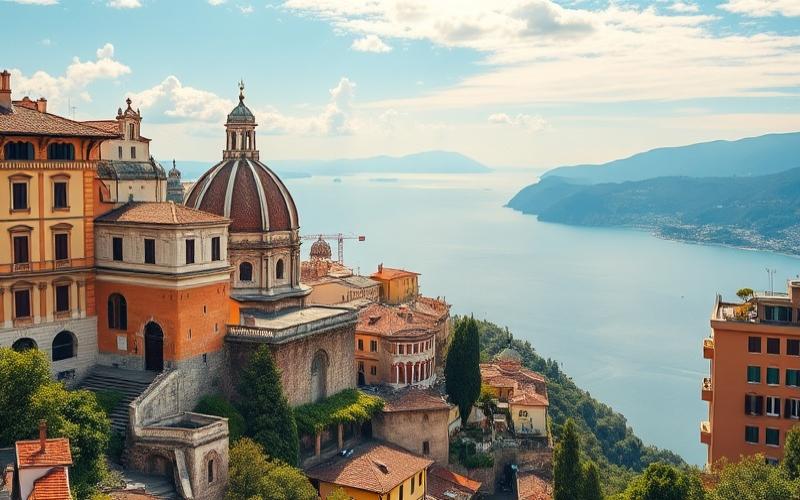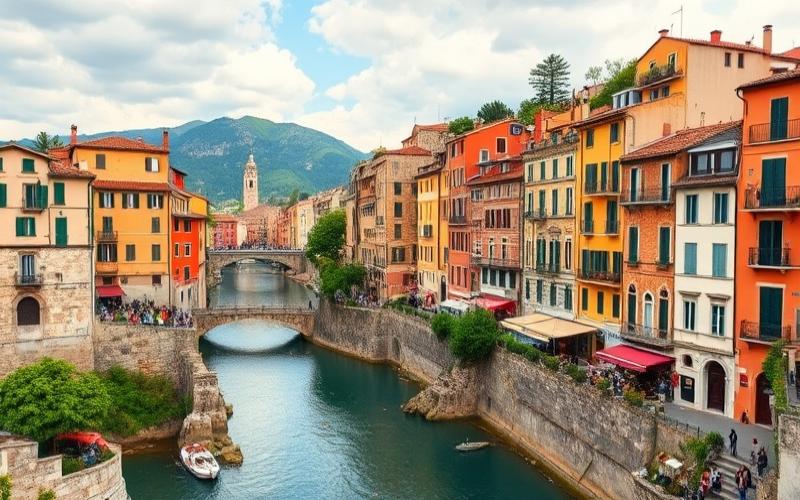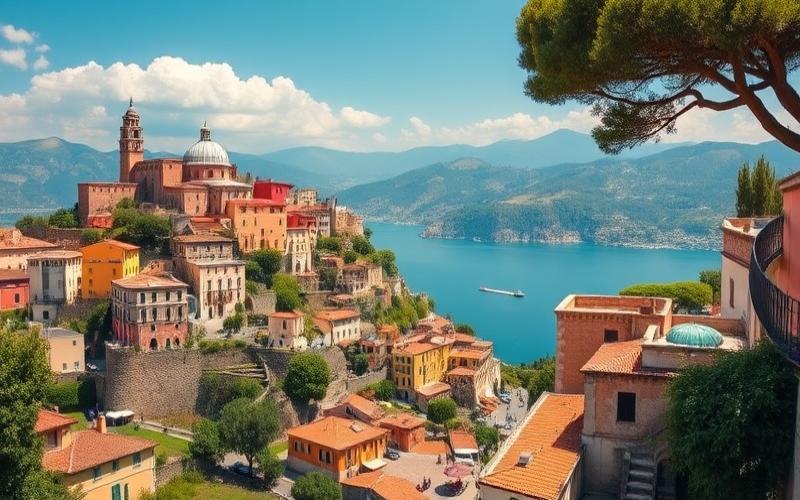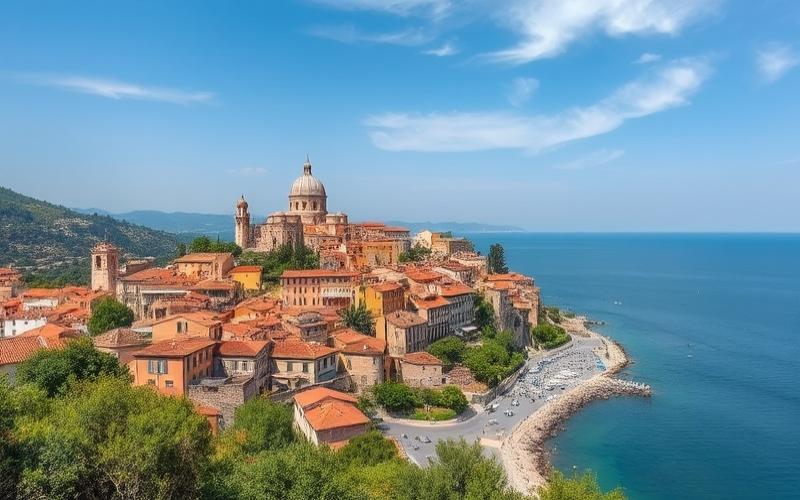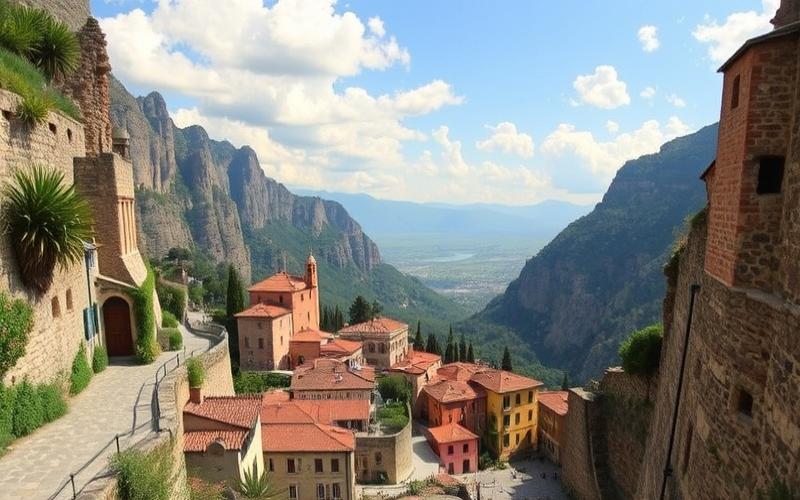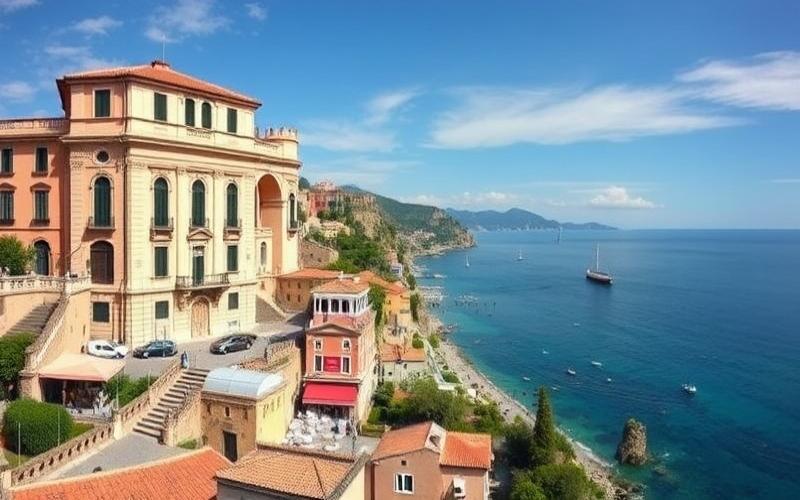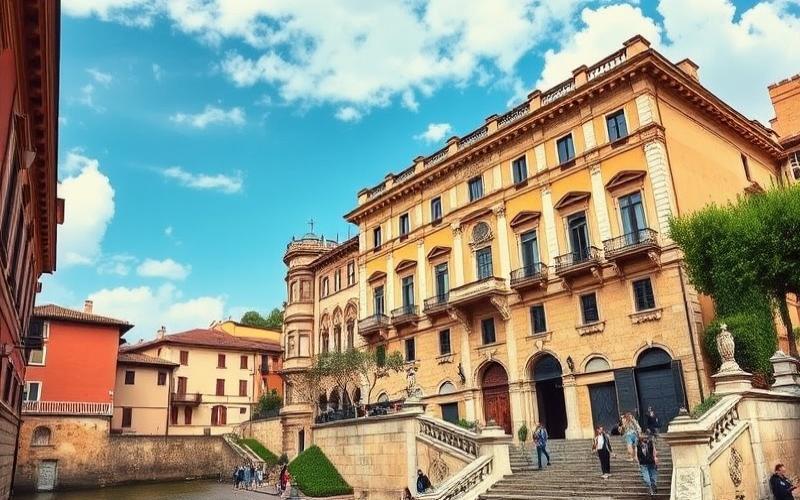
 Published on and written by Cyril Jarnias
Published on and written by Cyril Jarnias
Italy, with its picturesque landscapes, rich cultural heritage, and renowned cuisine, attracts many French investors eager to purchase property in the peninsula. However, buying real estate in a foreign country can prove to be a real obstacle course, fraught with pitfalls for the uninitiated. In this article, we will explore the most common mistakes made by French buyers in Italy and provide you with valuable advice to avoid them. Whether you dream of a Tuscan villa, a Roman apartment, or a village house in Puglia, here is what you absolutely need to know before embarking on the Italian real estate adventure.
The Purchase Price Mirage: Don’t Rely Solely on the Listed Price
One of the first mistakes many French investors make is focusing only on the listed purchase price. This approach can be particularly misleading, especially in the context of the famous 1-euro houses that have made headlines in recent years.
The case of 1-euro houses: a deceptive opportunity?
These enticing offers, launched by several Italian municipalities to revitalize villages experiencing population decline, have attracted the attention of many French buyers. However, it is crucial to understand that the symbolic price of one euro represents only a tiny portion of the actual investment required.
In reality, purchasing a 1-euro house involves strict obligations and significantly higher costs. These properties are often in an advanced state of disrepair, requiring major renovations. Municipalities typically impose a renovation timeframe of 2 to 3 years, with the obligation for the buyer to provide a detailed work plan. Furthermore, some municipalities require a bank guarantee ranging from 5,000 to 10,000 euros, refundable once the renovations are completed.
Renovation costs can quickly amount to several tens of thousands of euros, or even more depending on the property’s condition and the scope of necessary work. In addition, there are administrative fees, property taxes, and registration fees, which can represent several thousand additional euros.
Beyond 1-euro houses: the hidden costs of Italian real estate
Even for more conventional purchases, it is essential to consider all the fees associated with acquiring a property in Italy. These costs can include:
- Notary fees (typically between 2% and 4% of the purchase price)
- Registration taxes (which vary depending on the type of property and the buyer’s status)
- Real estate agency fees (often around 3% of the sale price)
- Potential translation fees for official documents
- Costs related to mandatory diagnostics and certifications
Good to know:
In Italy, the total cost of additional fees can represent between 10% and 15% of the property’s purchase price. It is therefore crucial to include these expenses in your overall budget to avoid any unpleasant surprises.
Administrative Negligence: A Bureaucratic Labyrinth Not to Be Underestimated
Another common mistake is underestimating the administrative complexity related to buying property in Italy. The Italian bureaucratic system is known for its heaviness and complexity, and navigating this labyrinth can prove particularly challenging for a foreigner.
The importance of the codice fiscale
One of the first essential steps for any foreign buyer is obtaining the codice fiscale, the Italian equivalent of a tax identification number. This number is indispensable for any real estate transaction in Italy, but also for opening a bank account, signing insurance contracts, or paying local taxes.
Verifying property titles
A common error is not conducting a thorough verification of property titles. In Italy, it is crucial to ensure that the property is free of any mortgages, easements, or other encumbrances. This verification must be performed with the Italian land registry (Conservatoria dei Registri Immobiliari).
Building permits and habitability certificates
For properties requiring renovations or modifications, it is essential to verify the existence and validity of building permits. Similarly, ensure that the property has an up-to-date habitability certificate (certificato di abitabilità). The absence of these documents can lead to major complications, or even the impossibility of carrying out certain work or legally inhabiting the property.
Urban planning compliance
In Italy, urban planning compliance is a crucial aspect of any real estate transaction. It is imperative to verify that the property complies with local urban planning regulations and that there are no illegal constructions or unauthorized modifications. Non-compliance can result in severe penalties and compromise the property’s value.
Good to know:
It is highly recommended to enlist the services of an experienced Italian notary and an expert surveyor to perform all these checks. Their expertise can save you from many future problems and secure your investment.
Overlooking Tax Specifics: A Financial Headache to Anticipate
Italian real estate taxation can hold unpleasant surprises for French investors who haven’t taken the time to properly inform themselves. Neglecting this aspect can have significant long-term financial consequences.
Double taxation: a risk not to be overlooked
Although France and Italy have signed a tax treaty to avoid double taxation, certain subtleties can escape unwary buyers. It is crucial to understand how your Italian property will be taxed, both in Italy and in France.
In Italy, property owners are subject to several taxes, including:
- IMU (Imposta Municipale Unica): an annual property tax
- TARI (Tassa sui Rifiuti): a waste collection tax
- IRPEF (Imposta sul Reddito delle Persone Fisiche): the Italian income tax, which may apply to rental income
In France, you will need to declare your Italian property in your income tax return and potentially in your IFI (Impôt sur la Fortune Immobilière – Real Estate Wealth Tax) declaration if the value of your real estate assets exceeds the taxation threshold.
The pitfalls of rental income taxation
If you plan to rent out your property, it is essential to understand the tax implications of this activity. In Italy, rental income is subject to income tax, with rates that can vary depending on the type of rental (long-term or seasonal) and the chosen tax regime.
Furthermore, some Italian municipalities have implemented restrictions on short-term rentals, particularly in the historic centers of tourist cities like Florence or Venice. It is crucial to inquire about these regulations before investing in a property intended for seasonal rental.
Capital gains: a potential surprise
When selling your Italian property, you may be subject to capital gains tax, both in Italy and France. The rules for exemption and calculation of capital gains differ between the two countries, which can lead to complex tax situations.
Good to know:
It is highly recommended to consult a tax expert specializing in international real estate transactions before finalizing your purchase. This will allow you to optimize your tax situation and avoid unpleasant surprises.
Unawareness of Local Particularities: A Costly Cultural Misstep
Italy is a country with deeply rooted traditions and customs, which vary considerably from region to region. Ignoring these local particularities can not only complicate your purchasing process but also affect your quality of life once settled.
Restrictions in historic centers
Many Italian cities impose strict restrictions on renovations and modifications in historic centers. In Rome, Florence, Venice, or small medieval villages, the rules can be particularly restrictive. For example, it may be forbidden to modify facades, install air conditioners visible from the outside, or even change the color of shutters.
Easements and rights of way
In rural areas or small villages, it is not uncommon to encounter easements or ancestral rights of way that are not always clearly documented. These rights may allow neighbors or the local community to use a part of your property to access their land or common resources.
Particularities of Italian condominiums
The Italian condominium system (condominio) can differ significantly from the French system. Decision-making rules, allocation of charges, and even the management of common areas can hold surprises for French buyers accustomed to a different way of operating.
The importance of neighborly relations
In many Italian regions, good neighborly relations are crucial and can greatly influence your quality of life. Ignoring local customs, such as siesta hours in southern Italy, or not participating in community life can isolate you and complicate your integration.
Good to know:
Before buying, take the time to immerse yourself in local life. Spend time in the neighborhood or village, talk with the residents, and try to understand the local social dynamics. This will help you better assess if the place truly matches your expectations and lifestyle.
Underestimating Renovation Costs: A Potential Financial Pitfall
The appeal of charming old Italian homes can quickly turn into a financial nightmare if renovation costs are poorly assessed. This mistake is particularly common among foreign buyers, often seduced by a property’s apparent potential without fully measuring its challenges.
The complexity of historic buildings
Old buildings in Italy, whether Tuscan villas, trulli in Puglia, or Venetian palazzi, often present unique renovation challenges. Traditional construction techniques, the use of specific materials, and historical preservation requirements can significantly increase the costs and duration of work.
Structural surprises
It is not uncommon to discover major structural problems once work has begun. Unstable foundations, chronic humidity issues, or termite infestations can quickly blow the initial budget.
Regulatory constraints
Italian regulations regarding renovations, especially for listed buildings or those located in protected areas, can be extremely strict. Obtaining the necessary permits can take months, or even years, and specific requirements (such as the use of traditional materials) can considerably increase costs.
The difficulty of finding qualified craftsmen
In some regions, particularly rural ones, finding qualified craftsmen for specialized work can be challenging. Furthermore, the language barrier can complicate communication and project management, leading to costly delays and misunderstandings.
Good to know:
Before buying a property to renovate, have a complete assessment done by an Italian architect or expert surveyor. Establish a detailed budget including a comfortable margin for unforeseen events (at least 20% of the initial budget). Finally, ensure you have all the necessary permits before starting work.
Neglecting Legal Aspects: A Legal Risk Not to Be Underestimated
Buying real estate in Italy involves navigating a legal system different from the French system. Neglecting these legal aspects can lead to complex situations, or even the invalidation of the sale.
The crucial role of the Italian notary
In Italy, the notary plays a central role in the real estate transaction. Unlike in France, where the buyer and seller can share the same notary, in Italy, it is recommended that each party has their own notary. The Italian notary is responsible for verifying the legality of the transaction, the authenticity of documents, and the absence of encumbrances on the property.
The Italian preliminary sales agreement
The compromesso, the Italian equivalent of the preliminary sales agreement, is a legally binding document. Once signed, it is difficult to withdraw without significant penalties. It is therefore crucial to fully understand all the terms of this agreement before signing it.
Pre-emption rights
In Italy, certain properties may be subject to pre-emption rights, particularly agricultural properties or those located in areas of historical interest. These rights can give purchase priority to the municipality or other parties, which can complicate or delay the transaction.
Verifying inheritance status
In the case of inherited properties, it is essential to verify that all heirs have agreed to the sale. Unresolved inheritances or family disputes can block a sale, even at an advanced stage of the transaction.
Good to know:
Do not hesitate to enlist the services of a lawyer specialized in Italian real estate law, in addition to the notary. This expert can guide you through the subtleties of the Italian legal system and help you avoid legal pitfalls.
Conclusion: The Key to a Successful Investment in Italy
Buying real estate in Italy can be a rewarding and potentially lucrative experience for French investors. However, as we have seen, this journey is fraught with pitfalls for the uninitiated. The common mistakes we have explored – from underestimating real costs to neglecting administrative, tax, and legal aspects – can turn the Italian dream into a veritable financial and logistical nightmare.
The key to a successful investment lies in meticulous preparation and a thorough understanding of the Italian real estate market. It is crucial to:
- Conduct thorough research on the region and the targeted property
- Surround yourself with competent local professionals (notary, lawyer, accountant)
- Rigorously budget for all costs, including hidden fees and unforeseen events
- Take the time to understand local and cultural specificities
- Not rush into a decision based solely on emotion or the appeal of the price
By avoiding these common mistakes and adopting a cautious and well-informed approach, French investors can fully enjoy the opportunities offered by the Italian real estate market. Whether for a second home, a rental investment, or a life project, Italy remains a destination of choice for those who know how to navigate its particularities.
Good to know:
Even after the purchase, remain vigilant and informed about legislative and tax developments in Italy. The real estate market and regulations can evolve quickly, and it is important to stay compliant to peacefully enjoy your Italian investment.
Disclaimer: The information provided on this website is for informational purposes only and does not constitute financial, legal, or professional advice. We encourage you to consult qualified experts before making any investment, real estate, or expatriation decisions. Although we strive to maintain up-to-date and accurate information, we do not guarantee the completeness, accuracy, or timeliness of the proposed content. As investment and expatriation involve risks, we disclaim any liability for potential losses or damages arising from the use of this site. Your use of this site confirms your acceptance of these terms and your understanding of the associated risks.

